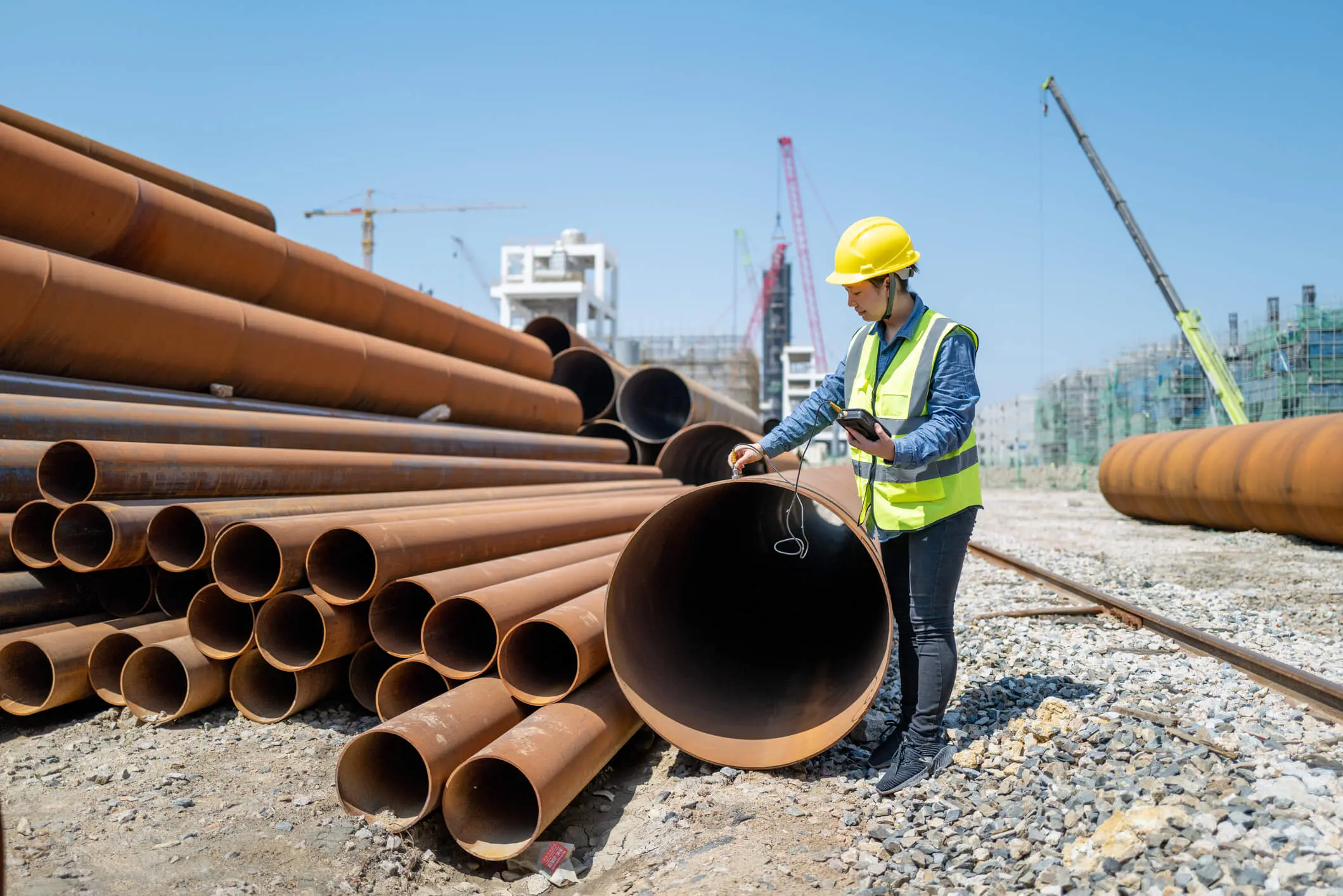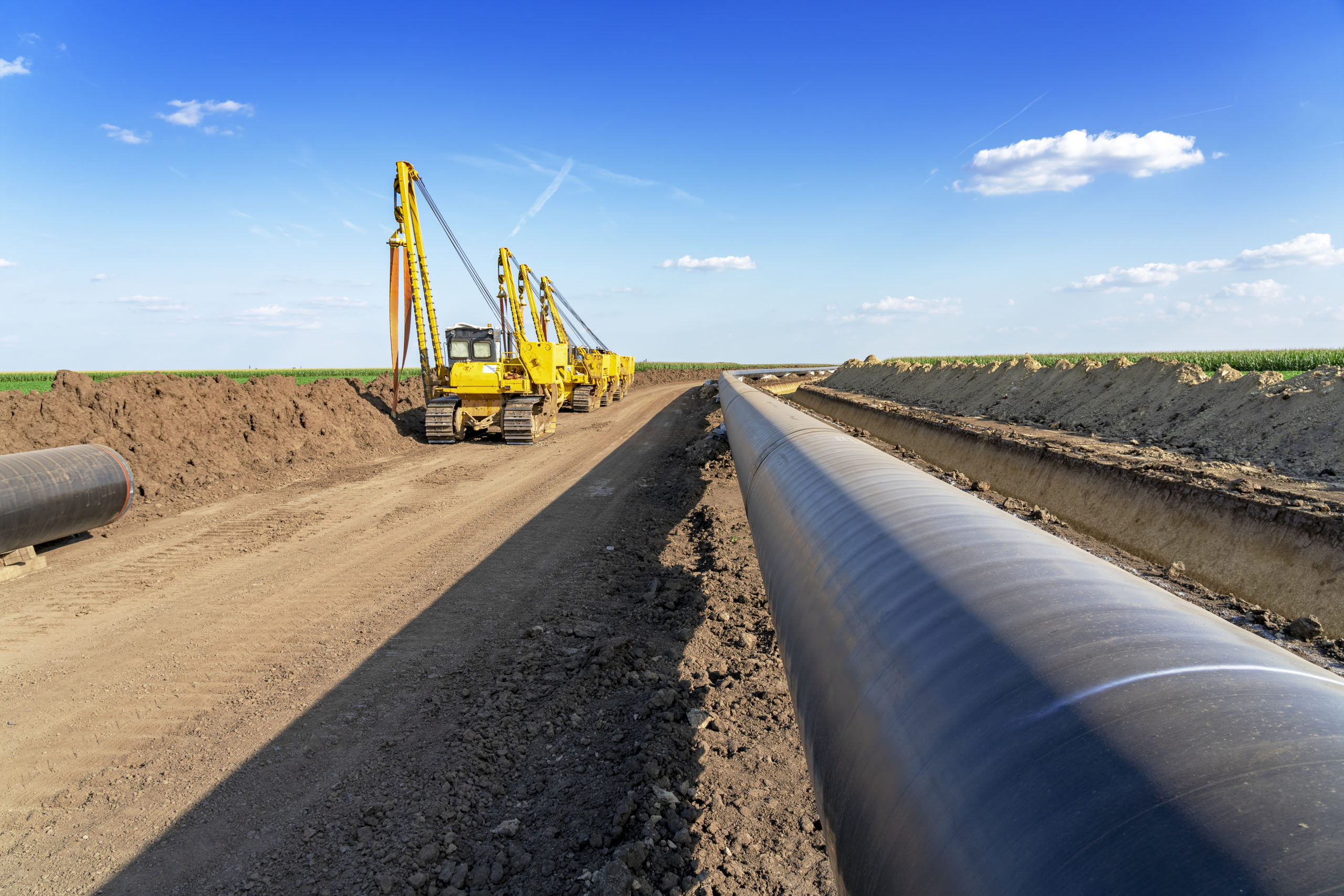Sustainable Solutions in Harsh Environments with Creek Pipe Company LLC
A Comprehensive Overview to Recognizing Pipelines and Their Duty in Building
Pipes are vital elements in construction, serving important features in waste, gas, and water monitoring. Their choice and application can considerably influence a structure's effectiveness and security. Various products, such as PVC, copper, and PEX, supply unique advantages matched to certain requirements (Creek Pipe Pipeline Construction). Recognizing these aspects is key for any kind of building project. As one discovers the complexities of pipes, the ramifications for compliance and public wellness ended up being increasingly noticeable
The Significance of Piping in Building
Pipes work as important channels in building and construction, assisting in the motion of water, gas, and waste throughout structures and framework. Their duty prolongs past mere transport; they are vital for ensuring the functionality and safety and security of property and business environments. Appropriately set up pipelines contribute to the effective distribution of sources, enabling everyday tasks such as showering, cooking, and heating. Pipes play an essential function in waste administration, making certain that sewer and wastewater are properly removed from living spaces.The importance of pipes is also reflected in their impact on public health. Inadequate or defective piping systems can cause contamination and dangerous problems, making high quality materials and setup practices imperative. Additionally, pipelines have to adhere to numerous building ordinance and guidelines, which are developed to safeguard both residents and the environment. The significance of pipes in building and construction includes both useful functionality and essential wellness considerations.
Types of Piping Made Use Of in Building Projects
Various kinds of pipes play a considerable role in building tasks, each developed to meet details requirements and applications. Among one of the most typically made use of pipe kinds are PVC, which is immune and lightweight to deterioration, making it suitable for drainage and air vent systems. CPVC pipes, similar to PVC, can withstand greater temperatures, commonly utilized in warm water systems. Copper pipes are understood for their sturdiness and integrity, often used in plumbing and home heating applications. Galvanized steel pipes, while less usual today, were once a criterion for supply of water lines as a result of their stamina. Additionally, PEX (cross-linked polyethylene) pipelines are gaining popularity for domestic plumbing because of their flexibility and resistance to scaling and chlorine. Lastly, cast iron pipelines are favored for their sound-dampening homes, commonly utilized in waste and dirt systems. Each pipeline type offers distinctive features, ensuring effective operation in building tasks.
Common Materials for Water Lines and Their Characteristic
In building and construction, the choice of pipe products is important for making certain resilience and performance. Steel pipelines supply stamina and resistance to high pressures, while plastic pipelines offer lightweight and corrosion-resistant options. Compound pipes integrate the benefits of both materials, making them versatile options for various applications.
Metal Pipe Options
Steel pipelines are integral components in construction, offering a variety of alternatives that deal with environmental conditions and different applications. The most common products consist of steel, copper, and cast iron. Steel pipelines are understood for their stamina and durability, making them suitable for high-pressure applications. Copper pipes are preferred for their corrosion resistance and antimicrobial properties, often used in pipes systems. Cast iron pipes offer outstanding sound insulation and are excellent for waste and water drainage systems. Each steel type has distinct benefits; as an example, galvanized steel can withstand rust, while stainless steel supplies superior deterioration resistance. Picking the proper metal pipe depends on variables such as price, ecological direct exposure, and the certain demands of the building and construction project.

Plastic Pipe Advantages
Plastic pipelines have actually obtained popularity in building because of their lightweight nature and adaptability. These pipelines, made from products such as PVC, CPVC, and PE, deal exceptional resistance to rust and chemical damage, making them appropriate for various applications. Their convenience of installment additional improves their allure, as they can be cut and joined without unique devices. Additionally, plastic pipes are normally more economical contrasted to steel options, adding to reduced total project costs. Their smooth indoor surface areas decrease rubbing and boost flow rates, while insulation residential properties help preserve temperature level control in plumbing systems - Creek Pipe Company. With a variety of setups and dimensions offered, plastic pipelines properly meet the varied demands of contemporary building and construction projects
Compound Pipe Characteristics
Composite pipes combine different products to take advantage of their specific toughness, causing boosted efficiency and sturdiness. Normally, these pipelines contain layers that may consist of metals, ceramics, and plastics, each contributing distinct homes. The inner layer may be made of a corrosion-resistant product, while the external layer provides stamina and effect resistance. This mix enables composite pipelines to hold up against severe temperatures and pressures, making them ideal for a vast variety of applications, including water supply and commercial processes. Additionally, composite pipelines are typically lighter than conventional products, assisting in simpler handling and installment. Their adaptability and adaptability to various atmospheres make them a recommended option in modern building projects, making sure longevity and performance in fluid transportation systems.
Applications of Pipeline in Pipes Systems

Electric Conduits: The Function of Pipes in Electrical wiring
In modern building, electric conduits play a crucial role in making sure the reliable and risk-free directing of electric circuitry throughout buildings. These pipes give a protective pathway for electric wires, securing them from physical damages and environmental aspects. Numerous materials, such as PVC, steel, and adaptable avenues, are used depending on the particular requirements of the installation.Furthermore, channels aid in arranging circuitry systems, reducing the risk of electrical risks like short circuits or fires. They likewise assist in less complicated upkeep and upgrades, as cords can be accessed and changed without substantial disturbance to the structure.Proper installment of electric avenues is essential for conformity with structure codes and safety and security laws. This organized strategy not just improves the durability of the electrical system but also contributes to the overall safety and security and capability of the structure, making electrical channels important in contemporary construction practices.
Picking the Right Pipeline for Your Job
Exactly how can one guarantee the right pipeline choice for a construction project? The option procedure begins with understanding the specific needs of the job, including the sort of liquids being carried, pressure rankings, and ecological conditions. Product choices, such as Steel, copper, and pvc, must be assessed based upon longevity, rust resistance, and thermal properties.Next, one should consider the pipeline's diameter and circulation capacity to identify effective procedure. Regulative standards and codes need to also be followed, as they dictate the appropriate materials and techniques for particular applications. Consulting with professionals and using considerable sources can additionally aid in making notified decisions.Finally, evaluating the cost-effectiveness of different options is crucial, stabilizing initial expenditures with long-term maintenance and substitute costs - Creek Pipe Company LLC. By diligently evaluating these variables, one can confidently choose one of the most suitable pipe for their construction job, assuring both capability and conformity

Upkeep and Evaluation of Pipeline in Construction
Correct choice of pipes establishes the foundation for their long-term efficiency, making maintenance and examination important elements in building and construction. Routine maintenance warranties that any type of potential problems, such as leaks, rust, or blockages, are recognized and dealt with promptly, lessening costly fixings and project try this website hold-ups. Scheduled examinations, including aesthetic assessments and stress examinations, play a vital role in examining the integrity of pipe systems.Additionally, checking environmental variables, such as temperature changes and dirt conditions, can aid anticipate damage. Utilizing sophisticated modern technologies, such as CCTV for interior assessments, can boost the effectiveness of upkeep initiatives. It is essential to record examination findings and maintenance tasks to develop a comprehensive background of the pipeline systems. By focusing on maintenance and evaluation, building specialists can expand the lifespan of their piping systems, ensuring they operate effectively and accurately throughout the task's duration.
Frequently Asked Questions
Exactly How Do Pipelines Impact Power Performance in Structures?
Pipelines greatly affect energy effectiveness in structures by managing home heating and cooling down systems. Appropriate insulation and materials reduce energy loss, while efficient pipes styles lessen water use, inevitably bring about reduced power intake and operational costs.
What Regulations Govern Pipe Installation in Construction?
Regulations governing pipeline installment in building and construction typically include nationwide and neighborhood building regulations, plumbing codes, and security standards. These guarantee conformity with architectural stability, material specifications, and health needs, advertising security and effectiveness in construction practices.
Can Piping Be Recycled After Usage?
The question of pipeline recyclability is considerable. Many products, such as metal and specific plastics, can be recycled successfully. Nevertheless, the problem and type of pipeline influence reusing feasibility, demanding appropriate analysis before disposal.
How Do Weather Impact Pipe Efficiency?
Climate condition substantially influence pipeline efficiency. Extreme temperature levels can create expansion or tightening, while dampness might result in rust. In addition, heavy precipitation can enhance soil pressure, influencing stability and total functionality of the piping system.
What Are the Indicators of Pipeline Failure to Expect?
Indicators of pipeline failure consist of leakages, unusual noises, staining of water, reduced water stress, and noticeable corrosion. Normal examinations can help identify these problems early, avoiding pricey fixings and making certain system capability in the lengthy term. Pipes play a pivotal function in waste administration, making sure that sewer and wastewater are effectively removed from living spaces.The significance of pipes is likewise shown in their effect on public health and wellness. In building, the option of pipe materials is crucial for guaranteeing toughness and performance. Metal pipes provide strength and resistance to high pressures, while plastic pipelines give light-weight and corrosion-resistant options. Additionally, pipes are made use of to get rid of wastewater, attaching bathrooms, sinks, and drains to municipal sewer systems or septic tanks.Different kinds of pipes, such as PVC, copper, and PEX, are chosen based on factors like durability, price, and certain application demands. How can one guarantee the appropriate pipeline choice for a original site construction task?